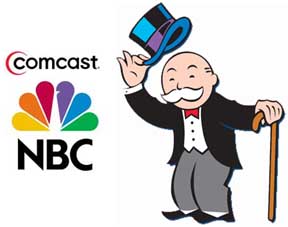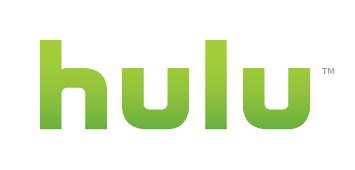A few weeks after word broke that Comcast was sniffing around NBC-Universal some on Wall Street are wondering whether a deal is more trouble than its worth. The deal, valued at $27 billion dollars, would wed the nation’s largest cable operator with NBC-Universal, which owns a broadcast network, a Hollywood studio, and several cable networks.
Bernstein Research, which has favored cable stocks for years, has been the source of considerable unease about the deal.
“Media moguls see it almost as a birthright to buy and sell assets, but most of it clearly has not worked out,” said Craig Moffett, who covers the cable industry for Bernstein. “The value of the deal is the conceptual value of vertical integration, and most of it is against the law as a regulatory matter.”
Moffett’s comment was part of a piece in The New York Times raising questions about whether a Comcast-NBC deal would create more problems than it would solve.
David Carr, writing for the Times, suggests the heady days of media moguls building celebrated giant corporate empires might be behind us, particularly in telecommunications. Carr, among others, raised memories of the AOL-Time Warner deal, when an upstart pre-dot.com-crash online service managed to build enough value to buy a content mega-company like Time Warner for $164 billion dollars in 2000. Just nine years later, AOL has become a forgotten relic, a shadow of its former glory. Even if the idea of wedding AOL’s online network with Time Warner’s content sounded like a good idea at the time, in the end it just didn’t work out, and Time Warner CEO Jeff Bewkes is devoting plenty of attention spinning AOL away, right down to peeling the letters “AOL” off the front of the building.
Deal proponents suggest Comcast’s cable systems combined with NBC-Universal’s content would give Comcast diversity in its business model, which relies almost entirely on its cable systems. Opponents say it will preoccupy Comcast with trying to integrate its focused cable-oriented business with a Hollywood studio and a legacy television network and the distractions that come with both. The deal also comes with a 30% stake in Hulu, which is good and bad according to Carr. It’s good because it gives the cable operator some control over a video distribution channel that could directly challenge its cable interests. It’s bad for precisely the same reason, practically begging for regulatory hurdles from a more sensitive-to-antitrust Obama Administration.
Carr suggests if Comcast is in the acquiring mood, it might want to keep its focus on the remarkably stable cable industry in a downturned economy. One such company, Time Warner Cable, the nation’s second largest cable operator, is a candidate according to Carr, and like Comcast is almost entirely focused on the cable television business.
Of course, such a deal would also certainly attract regulatory attention because of its size and scope.


 Subscribe
Subscribe



